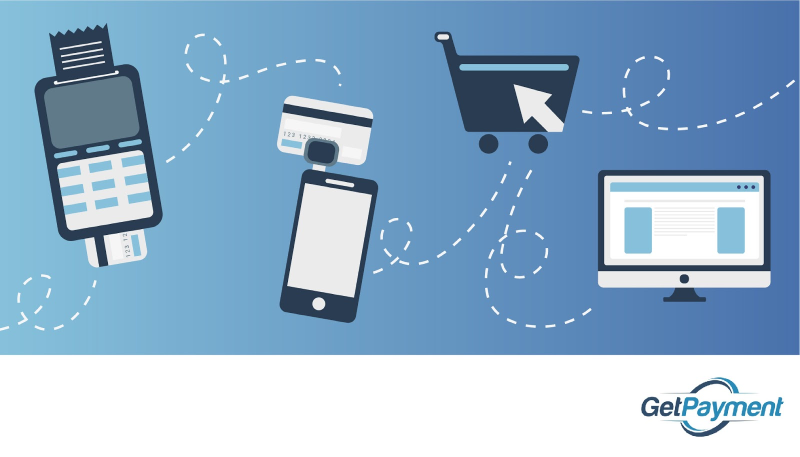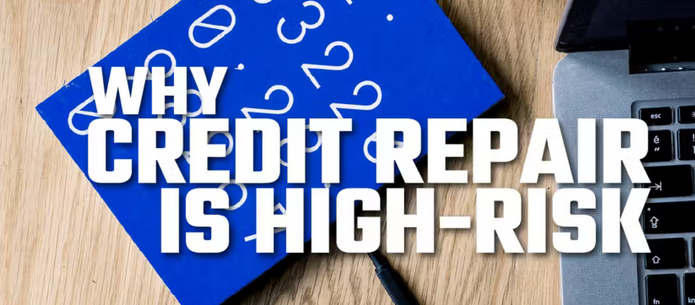As a business owner, you want to increase revenue by making it easy for customers to buy from you. That’s why choosing a merchant services provider (MSP) is one of the most important decisions you’ll make for your business.
Without an MSP, it wouldn’t matter how many potential customers want to make purchases from your store–because you wouldn’t be able to accept their cards.
Before you can collect credit and debit card payments, you need to partner with an MSP to support your business. Let’s talk about how card processing works, the steps involved in setting up a merchant account, and what to look for when choosing a merchant services provider.
What Are Merchant Services?
Whenever a customer buys something from you using a credit or debit card, merchant services are what happens behind-the-scenes to make the transaction possible.
You can think of your merchant services provider as the messenger that transmits secure payment data between your store, the issuing bank, and your bank. By handling payment processing—whether in-store on a physical point-of-sale terminal or online through your store’s checkout page—your MSP allows you to accept card payments so you can make more sales and increase your revenue.
In other words, merchant services are how your business gets paid; the role of a merchant services provider is to manage those merchant services.
Payment Processing: How Credit and Debit Card Transactions Are Processed
From the moment a customer pays with their card and the moment your merchant bank account receives the funds, your MSP is working hard to make sure you get paid. Here’s an overview of the payment processing process that MSPs help coordinate and keep on track.
- A customer uses their credit or debit card to buy something from your store (either online, in-person, or over the phone).
- The credit card or debit card information is transmitted to the acquiring bank (the merchant bank).
- The acquiring bank securely transmits the payment details to the card association (Visa, AMEX, Mastercard, etc.).
- The card association communicates with the bank that issued the credit card to the customer (the issuing bank).
- The issuing bank either approves or denies the transaction and assigns a code based on the decision.
- The issuing bank transmits the code back to the card association.
- The card association informs the acquiring bank whether or not the payment has been approved.
- If the transaction is approved, the payment is released into the merchant account.

How Does a Merchant Account Differ from Other Bank Accounts?
Setting up a merchant account is quite different from opening an account for your personal or other business finances. Here are a few things you should know about merchant accounts.
- Opening a merchant account is critical to running your business operations. A merchant account provides you with a unique merchant ID that’s attached to your business, which makes it possible to securely process and track transactions.
- Your merchant account holds funds while transactions are processing. Merchant services providers not only manage your account, but they communicate directly with credit card networks and banks on your behalf to confirm each transaction gets approved before the funds enter your merchant account.
- Merchant accounts add an extra layer of security to payments. Not only is opening a merchant account necessary for your business, but it also protects your customers and your business from fraud and privacy risks.
- Before you can accept credit card or debit payments, you need to choose a merchant services provider and set up a merchant account. Here are the basic steps to follow if you want to open a merchant account for your business.
Steps to Set Up a Merchant Account with an MSP
Step 1: Decide what type of payments you want to accept.
The first step in choosing a merchant account is to decide how you want to accept card payments. In other words, how do you want your customers to be able to pay?
Your answer will depend on whether you have a brick-and-mortar location or all of your sales take place online. If you have a physical store, you need to consider whether you want to accept mobile payments (like Apple Pay) or stick to credit cards and debit cards.
If your focus is ecommerce, you’ll need a payment gateway that allows customers to securely enter credit card information on your website.
Additionally, you might want to accept credit card payments over the phone—in which case you’d need a virtual terminal for payment processing.
Step 2: Research and compare your options.
Choosing an MSP is one of the first big decisions you need to make to get your store up and selling, so it’s important to get it right. Research your available options, including different types of services and packages. Compare prices and contract terms, as well as how compatible each MSP is with your business type and goals—including your current rate of growth, sales volume, and potential revenue.
Step 3: Choose a merchant services provider.
Weigh your options and choose a provider that can meet your unique business needs and aligns with your current reality. Consider that a high-growth startup experiencing exponential growth has very different payment processing needs than a small mom and pop shop with minimal foot traffic.
3. Apply to open an account.
The next step is to complete your application. Depending on the merchant services provider you choose, you might have to wait several days before you hear anything back.
In a rush to open your merchant account? GetPayment guarantees approval within 12 hours (unless further information is required, in which case we will contact you directly to get the full picture).
4. Start accepting payments!
After you’ve been approved, your MSP will work with you to get your merchant account and payment gateway up and running. Once you’re all set up, it’s time to start selling! Depending on your merchant services agreement, you’ll be able to accept debit cards and credit cards in-store, online, or over the phone.
Key Factors to Consider When Choosing a Merchant Services Provider
Choosing the right merchant services provider is a crucial step in launching a successful business. If you’re not sure what to look for, consider comparing these factors when choosing a merchant services provider.
Contract Terms
Before you enter into a contract with an MSP, make sure you know exactly what you’re signing. How long is the contract? Does it expire at a certain date or transaction threshold? Are you locked into the same terms indefinitely or is there an option to renegotiate after a certain period?
While a long-term contract might seem like a good deal upfront, getting locked into a contract can present challenges for a new business or high-growth startup – especially if you don’t have an option to renegotiate terms as you scale.
Cancellation Policy
We all know that things don’t always go according to plan. For better or for worse, there’s a chance that your payment processing needs will change before the terms of your contract are up for renegotiation. So, even if you’re happy with the contract terms, it’s a good idea to ask about their cancellation policy.
Is there a penalty for cancelling the contract early? How much would it cost you? If you’re in a particularly high-risk or volatile industry—or launching a fast-growing startup—you should consider the benefits of a shorter contract or an MSP that offers a more flexible cancellation policy.
Pricing Structure
In any type of partnership, a lack of transparency is a red flag. Plus, as a business owner yourself, you know how much customers hate confusing pricing models. Make sure the MSP you choose to work with is upfront about costs and willing to discuss any concerns before asking you to sign a contract. Confirm exactly what is included in your price and if anything is unclear, ask specifically about whether certain services cost extra.
There’s nothing worse than getting an unwelcome surprise on your next bill. But the good news is, you don’t have to tolerate hidden fees. While MSPs use complicated fee structures to keep merchants on their toes, GetPayment guarantees transparent flat-rate pricing for all of our clients.
Supported Payment Types

MSPs are responsible for the technology and interactions that make it possible for payments to get from your customer’s credit card to your merchant bank account. It’s vital that you partner with an MSP that supports the type of payment processing you want for your business, including the right hardware.
If you’re operating a brick-and-mortar location, you’ll need an MSP that can provide a retail POS system that allows you to accept mobile and card payments in-store.
If you lean heavily on ecommerce, you’ll need an online payment gateway that integrates with your store to offer secure, convenient checkout. Or you might want a virtual terminal that allows you to enter credit card information provided over the phone.
In any case, make sure the MSP you choose can provide (and maintain) the appropriate hardware and help you get set up to accept payments via your preferred methods.
Not only do MSPs communicate with banks to process card transactions, but they also store your payment in a secure holding account until the transaction is approved. That money is released into your merchant account once the payment is approved.
So, one of the biggest factors to consider when choosing an MSP is how quickly payments will reach your merchant account. The longer it takes for an MSP to process transactions and release your funds, the longer you’re stuck waiting for money that you’ve already earned.
Reliable Customer Support
It’s important that your MSP provides reliable tech support so you can get in touch with an agent when you need one most. After all, time is money—and the longer it takes to resolve payment processing issues, the more likely you are to miss out on potential revenue because you can’t accept card payments.
Before signing with an MSP, find out what type of customer support they offer. When is their support team available? Is there more than one way to get in touch with them (phone, email, Skype, etc.)? Do they offer on-site visits? How long do they take to respond and resolve merchant issues?
Choose a Merchant Services Provider that Suits Your Business Needs
By partnering with a merchant services provider, you’re making it as convenient as possible for your customers to buy from you. But it’s important to choose an MSP that makes payment processing convenient for you, too.
That’s why GetPayment provides every client with fast approval, transparent flat-rate pricing, and live USA-based customer support.
Ready to work with an MSP capable of supporting your unique business needs? Apply for your free merchant account analysis today!




